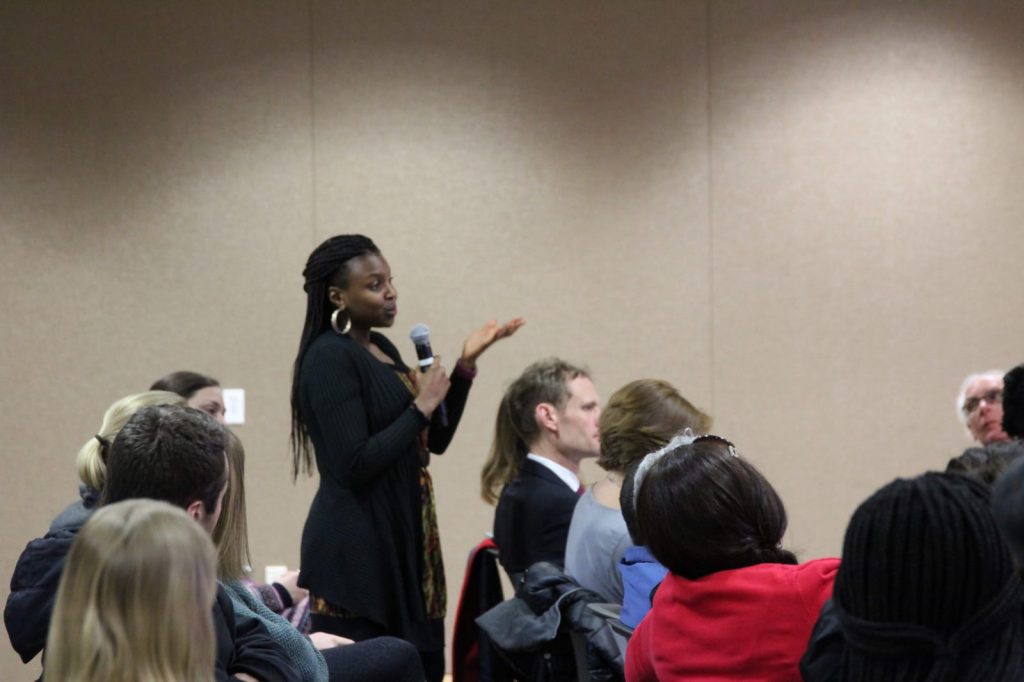Media Blackout, Restricted Access and Misinformation in Ethiopia Conflict

Sophie Neiman, Research Associate, Security & Intelligence Policy
sneiman@africacfsp.org
Limited access to Ethiopia’s restive Tigray region has curtailed aid workers’ ability to operate there, leaving residents, including millions of children, cut off from essential services. Meanwhile, a slowly waning media blackout means it is near impossible for journalists to confirm details about the fighting, and the needs of residents in areas impacted by battles and airstrikes. Information about the situation in Tigray instead comes via the thousands of refugees who have poured over the Sudanese border in recent months, but their harrowing stories cannot be verified.
Background to the Conflict
Fighting in Ethiopia began on the night of November 4th, when Prime Minister and 2019 Nobel Peace Prize Laureate, Abiy Ahmed, announced a military offensive against Tigray. The native Tigray People’s Liberation Front (TPLF), which once controlled the central government, has long been a thorn in Mr. Abiy’s side. In 2019, the group split from Mr. Abiy’s government coalition. In September 2020, the TPLF held its own regional elections after the Prime Minister, citing the coronavirus pandemic, postponed the highly anticipated vote.
Mr. Abiy claimed that TPLF fighters had forced his hand into conflict by attacking a military base in an attempt to steal weapons and ammunition. Just before the strike on Tigray began, internet, landlines, and mobile phone communications were cut off, throwing the region into complete darkness. Tigray’s authorities also closed the airspace above the troubled region.
Refugees streaming across the Sudanese border gave horrifying accounts of the situation in Tigray, often after walking for days over arid and mountainous terrain. Refugees told reporters at camps near the border that they had escaped gunshots and explosions. Others described machete attacks and ethnic profiling, raising concerns of a potential attempted genocide. The refugees spoke of abuses on both sides of the conflict, but it remains difficult to verify the number of incidents, or who exactly was responsible for specific atrocities. Members of the diaspora with relatives in Tigray struggled to reach family members in the conflict zone, not knowing whether they were safe, injured, or alive.
The government declared victory on November 28 after claiming it had captured Mekelle, the largest city in and regional capital of Tigray. Mr. Abiy said his soldiers had avoided civilian casualties, but this assertion, as well as claims of government triumph, are dubious with fighting entering its fifth month in March. Thousands of people have been killed and at least 1 million displaced.
Continued Confusion
Phone lines were restored to Mekelle on December 14. However, numerous Tigray towns remain cut off from the outside world. A Twitter account entitled Ethiopia Map (@MapEthiopia) tracks the conflict, and reported that fighting and bombing continues within the interior of Tigray. In December, Sudanese forces reported they were attacked by Ethiopian government troops and affiliated militias. Further, Eritrean soldiers were accused of joining the Ethiopian military in the siege of Tigray, with local elders claiming they were being ‘slaughtered like chickens.’ In February, the Associated Press published the details a horrifying massacre allegedly committed by Eritrean troops, which the Eritrean government denies.
The central government in Addis Ababa has denied responsibility for internet cuts, however, it would not be the first time Ethiopian officials have blocked the internet amidst a national crisis. In June, after the death of Oromo singer Hachalu Hundessa, violent protests erupted and the internet was cut for 23 days.
Some journalists have managed to access Tigray, but movement in the region remains restricted. As a result, the extent and impact of an already complex conflict remains underreported. Both the Ethiopian government and the TPLF have tried to fill this gap with propaganda, and misinformation about the conflict has spread quickly on social media.
Reporters have also faced a range of threats, making their work extremely difficult. Ethiopian journalist Medihane Ekubamichael, an editor at the privately owned Addis Standard, was last year accused of “anti-state crimes”. Mr. Ekubamichael was covering the Tigray conflict at the time of his arrest in November. Journalists told Al Jazeera that they had to abandon various investigative projects in Tigray for fear of reprisals, and in January Tigray TV broadcaster Diwat Kebebe Araya was discovered shot in the head in his car near Mekelle, prompting the United States-based Committee to Protect Journalists to call for an independent investigation into his death. Independent journalist Lucy Kasa said that armed men broke into her home and stole her laptop, while accusing her of supporting Tigrayan leaders. International journalists have suffered online smear campaigns.
Aid workers have also struggled to gain unimpeded access to the region. In February, the Ethiopian Red Cross said that 80% of Tigray’s population remained unreachable, meaning tens of thousands of people could starve to death in a matter of months. The United Nations Office for the Coordination of Humanitarian Affairs (OCHA) has warned of “a very critical malnutrition situation”, with rural areas still cut off from humanitarian access. Fighting has also interrupted the harvest season. Meanwhile, four aid workers were killed in Tigray in December.
Devastating Impacts
The details that have so far emerged from Tigray are horrifying, but a great deal about this brutal conflict and the resulting humanitarian crisis remains unknown. Potential gaps in information curtail critical understanding of a conflict that could destabilize not just Ethiopia, but the surrounding region.
Equally troubling are the myriad unmet needs of communities. It is imperative that the Ethiopian government immediately permit reporters and humanitarians to do their work freely, allowing for a full picture of this conflict to emerge and a proper response to be coordinated.
Based on your interests, you may also wish to read:
- Coronavirus Pandemic Poses New Challenges in the Fight Against Violent Extremism is Northeast Nigeria
- Women as Peacemakers in Senegal – Voices To Be Heard
- Burkinabe Men in Collective Action Against Gender-Based Violence
- Principles for Independence: Maintaining African Autonomy in the Age of COVID-19


